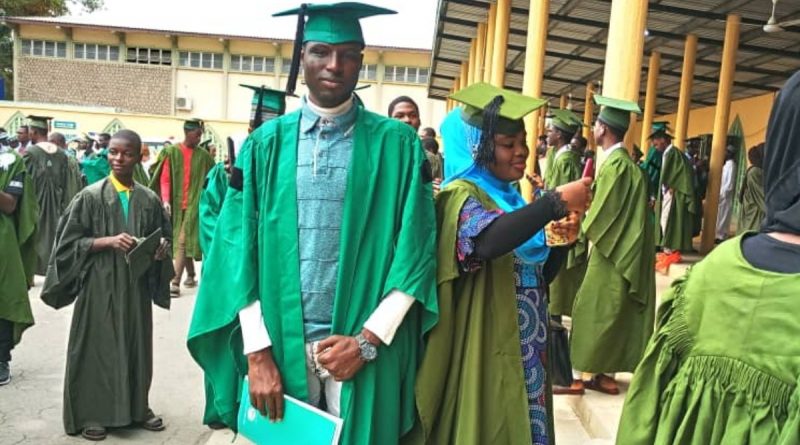Improving university education in Nigeria
By Niyi Akinnaso
At a time when countries in the Americas, Europe, and Asia are paying more and more attention to university education through infrastructural development, digital learning management systems, targeted funding, breakthrough research, and faculty and student exchange programmes, African countries are squabbling over political positions, with their elite being consumed in power struggle and primitive accumulation, while only paying lip service to university education.

Universities are mushrooming all over the place, alright; but most of them are lame at birth, while older ones are wallowing in crumbled and still crumbling basic infrastructure and facilities.
Over there, the focus is on giving the best education to the few as university students are being prepared for global competitiveness. Down here, the focus is on giving the worst education to the most university students, as they are being prepared for local markets, which have much fewer jobs than the number of graduates being produced.
ALSO READ: 6 Reasons Why You Should Love Your University Libraries
The few available jobs are offered to more prepared graduates (mostly children of the African elite) trained in the advanced countries or in elite local private universities.
The situation could not have been worse for Nigeria than now, when the major indicators of quality university education are at their lowest levels, leading to the production of poor quality graduates, who are being advised by the government to go to the farm in the absence of job opportunities. Those who don’t want to go to the farm take to various forms of crime.
Nigerian universities lack four major indicators of quality education, accounting for the present sorry state of the sector. First, while the world’s top universities operate with sizable budgets, Nigerian universities lack adequate and regular funding, not just to pay staff salaries but also to fund research and provide cutting-edge facilities for teaching and learning.
Save for a few private universities into which their proprietors pumped huge resources, often for take-off, Nigerian university campuses and research facilities leave much to be desired.
Federal and state governments have consistently starved the education sector of funds, with the Federal Government allocating less than 10 per cent of the national budget to education, while states average below 15 per cent.
It is quite understandable then why public universities in the nation experience very deep cuts to their budgets. Even the slashed budgets are never paid in full or on time. As a result, the universities have stagnated, save for the occasional intervention of TETFund and other government parastatals.
Second, good quality universities feature world class teachers, researchers, and students, who invest in one another through stimulating leftyres, seminars, workshops, conferences, research, and other academic activities.
True, Nigerian premier universities started out this way, but Nigerian universities today suffer from poor quality teaching, reflecting the low quality of lecturers, substandard research output, and unqualified students.
To be sure, there are exceptions here and there, but the general national outlook is discouraging. You have universities where majority of lecturers either lack a doctorate degree or have not attained Senior Lecturer rank; where university teachers make it to the top by publishing in obscure journals in India, Pakistan, Malaysia, and other obscure places; and where unqualified students are admitted and matriculated.
In 2017, a document credited to the Joint Admissions and Matriculation Board indicated that at least 23 of the nation’s 168 universities at that time have adopted an admission cut-off of 120 out of a total of 400 points, that is, 30 per cent of the pass mark.
It has by now become clear that the decision to lower the admission cut-off was made by the Vice Chancellors, a decision vigorously defended by JAMB as being better than allowing universities to admit students under the table, without even taking the Unified Tertiary Matriculation Examination at all or encouraging them to go to universities in some other African countries, where the standard may be worse than that of Nigerian universities.
ALSO READ: As Professor Ibrahim Garba Steps Aside – By Musa Kalim Gambo
Equally substandard is the prevailing pedagogical practice in the universities. Rather than see themselves as facilitators and employ a modern learning management system, most Nigerian lecturers still see their role as that of a traditional teacher who stands in front of the class and talks till time is up.
Third, Nigerian universities have a management deficit. This is due partly to the politicization of the appointment of key managers of university affairs. The situation is further complicated by the parochialization of the recruitment of academic and administrative staff. The result in most cases is square pegs in round holes.
This is not to excuse the militancy of university unions, which leads to the fourth major problem with university education in Nigeria today. Recurrent strikes by various university unions are often responses either to government’s failure to honour its financial obligations or to poor governance in the universities.
Yet, recurrent strikes by the unions could only complicate the declining standard and credibility of Nigerian universities, while also putting the students’ learning experience at risk.
It will be futile to expect a simplistic solution to the problems facing university education in Nigeria today. Nevertheless, to the extent that poor funding seems to be primary, it is high time federal and state government executives got together to jointly empower public universities to increase tuition and related fees.
The ultimate goal is to reduce the gap in tuition between private and public universities in order to reduce the facilities gap between the two types of universities as well as provide a level playing field for admission seekers. At the same time, universities should explore additional ways of increasing their Internally Generated Revenue.
This has become necessary because it is now abundantly clear that neither federal nor state governments could cope with the financial demands of public universities. Even in the United States, state government subventions have long been overtaken by tuition revenues as the universities kept increasing tuition and related fees to make for repeated shortfalls in government subventions.
To be sure, there will be parents who may not be able to afford an increase in tuition. The government could assist such parents with one form of financial assistance or the other. In the final analysis, it is better for the government to focus on Universal Basic Education than to continue with the illusion of affordable university education.
By Niyi Akinnaso. Credit: thenationonlineng.net








